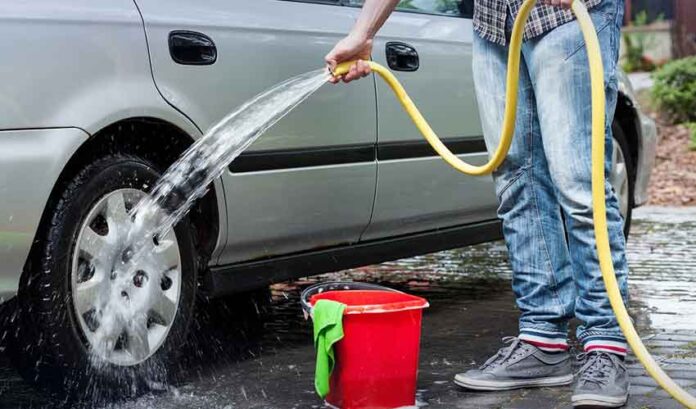“Punjab Government Pakistan Bans Home Car Washing to Conserve Water Amid Ongoing Water Crisis”
The government of Punjab, Pakistan, has introduced a significant directive to conserve water amid the province’s ongoing water crisis. On Thursday, the Punjab Environmental Protection Agency (EPA) announced a ban on washing cars at home, imposing a fine of Rs 10,000 ($35.75) for violators. This measure aligns with a recent order from the Lahore High Court (LHC), aimed at addressing water scarcity in the region.
Why Choose this Initiative?
- Water Conservation: The ban is a critical step toward reducing excessive water usage.
- LHC Compliance: It follows the Lahore High Court’s directive, strengthening legal measures for water management.
- Proactive Environmental Measures: This initiative is part of a broader strategy to manage Punjab’s water resources more effectively.
Roles and Responsibilities
- Government Agencies: The EPA is tasked with enforcing the ban, issuing fines, and monitoring water usage.
- Petrol Stations & Car Washes: They are responsible for installing wastewater recycling systems and adhering to water usage regulations.
Types of Measures Introduced
- Car Washing Ban: Prohibits washing cars at home and using hose pipes.
- Oil Washing Ban: Bans the oil washing of vehicles to prevent water wastage.
- Car Wash Stations Regulation: Requires mandatory installation of wastewater recycling systems and U-channels at all car wash stations by February 28, 2025.
- Petrol Station Compliance: Petrol stations without water treatment plants will face fines and potential closure of car wash areas.
Eligibility Criteria
This directive applies to all car owners, petrol stations, and car wash service providers in Punjab. Authorities will monitor compliance across residential, commercial, and service locations.
Application Process
- For Residents: Vehicle owners must refrain from washing cars at home to avoid fines.
- For Petrol Stations/Car Washes: Must install wastewater treatment systems by the stipulated deadline or face penalties.
Salary Expectations & Economic Impact
While the directive focuses on environmental concerns, it also influences the local economy, particularly the car wash industry, which must adapt to new regulatory standards.
Top Employers and Enforcers
- Punjab Environmental Protection Agency (EPA): Will enforce the directive and monitor compliance.
- Car Wash Service Providers: Must adhere to the new requirements or face penalties.
Regions with High Demand for Car Wash Services
This directive will primarily impact urban areas across Punjab, where car washing services are prevalent.
Benefits of the Ban
- Water Conservation: Reduced water consumption will help mitigate the effects of the ongoing drought and water deficit in Punjab.
- Long-term Sustainability: The measures aim to ensure water availability for future generations.
- Environmental Responsibility: Encourages responsible water usage and supports government efforts to combat smog and environmental degradation.
Challenges of Implementing the Ban
- Public Resistance: Car owners may resist the changes, especially those accustomed to home car washing.
- Industry Compliance: Some car wash stations may struggle to meet the new wastewater recycling requirements.
The car washing ban and water conservation efforts in Punjab, Pakistan are necessary steps to address the province’s critical water shortage. With the growing population and the exacerbating effects of climate change, these measures represent a proactive approach to safeguard water resources for the future.



